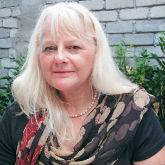When I first heard that The Expat Group’s new magazine for Penang, launched in April of this year, was going to be called Penang International, I thought it sounded like an airport. In fact, however, the title is increasingly apt, as Penang is becoming more and more international, and the magazine aim serves this diverse audience. A recent marker of Penang’s growing cosmopolitan nature was the recent George Town Literary Festival, which brought writers from all over the world to talk about the creative life and the way literature can influence political issues. They even went beyond that, suggesting that democracy needs to be reclaimed as a genuine voice of the people, advocating the role of the arts in re-vitalising this process. It’s an international issue and one that every country needs to be concerned with.
There was a touching moment early on in the three-day festival when the Chief Minister of Penang, Lim Guan Eng, embraced septuagenarian writer A. Samad Said. Politicians and poets don’t usually make the best bedfellows, but this was a very genuine meeting of hearts and minds. A. Samad Said, Malaysia’s “national laureate,” had just read some of his evocative poems in Malay. He is also involved with Bersih 2.0, a group that pushes for electoral reform, and last year, Said was questioned by the authorities over the poems he had read at one of the rallies as they were suspected of being seditious. Lim Guan Eng, who opened the Festival, has actually trumped this, as he has previously been to prison for sedition and served a full year of his sentence. Lim said, with great restraint but deep feeling, “Anyone can be a friend of the Chief Minister but when you’ve just come out of prison, you know your real friends.”
A. Samad Said is a novelist as well as a poet. One of his novels, Morning Rain, describes the subtle power structures and hidden censorship within a newspaper. He believes that the mainstream press is controlled, so one must go to alternative media – frequently the internet – for a more accurate viewpoint. At 77 years old and with the help of his grandson, he has got himself on Facebook and writes on his page every day. “We don’t want different political parties,” he declared roundly, “we want a different relationship to the state.”
His remarks were made during a panel discussion by Linda Christanty, Alfian Sa’at, Andre Vltchek, David van Reybrouck, and A. Samad Said, which was a central event of the festival. Intriguingly entitled “My Democracy,” a play on the short form of “Malaysia” (MY) coupled with an invitation to respond personally to the notion of what a democratic process should look like. Given that there were writers present from Indonesia, Belgium, and Russia who had among them lived in South America, Europe, and Africa, as well as locals, the debate was wide-ranging and global.
David van Reybrouck, author of the seminal work Congo – a narrative woven together from five hundred people who suffered under the shadow of colonialism – made the point that, “Writing requires you to sit down and be on your own, but it is hard to write when the roof is leaking.” He likened the state of democracy to a leaky roof, where people are invited to cast their vote every four years but little else. He has taken time out from writing to form G1000 (www.g1000.org), a website that aims to enrich democracy by inviting participatory debate.
Linda Christanty made the point that in her home country, Indonesia, the government used cultural and religious beliefs to control the discourse so that writers had to write more allegorically as a result. Andre Vltchek, spoke about the political concerns of the classical novelists (such as Balzac, Dickens, and Dostoevsky) who addressed serious issues of the day without sugar-coating them with entertainment. He also mentioned that politicians can try to lull voters into a false sense of security by denying the role of sacrifice in getting to the next step. In other words, there are tough choices to be made, and we all have to be prepared to be part of the decision-making process.
It was entirely fitting that the Chief Minister of Penang opened the Literary Festival. Not only was he influential in getting it going in the first place, but he has also had a hand in creating a more international Penang; one that acknowledges the dreams of the people who came as migrants from all over the world to create the multicultural island we know today. We must hope that the evolution of an increasingly cultural city keeps an open door to those who want to visit or live here; it’s the only way that Penang will ever truly be international.
———————————————————————————————————
Source: The Expat January 2013
Read more:
- Artistic Identity in Penang
- The Island of Koh Lipe
- Panoramic Dining at the Bayview Hotel, George Town
Have thoughts or comments on this article? Let us know by posting your comments below
"ExpatGo welcomes and encourages comments, input, and divergent opinions. However, we kindly request that you use suitable language in your comments, and refrain from any sort of personal attack, hate speech, or disparaging rhetoric. Comments not in line with this are subject to removal from the site. "






















